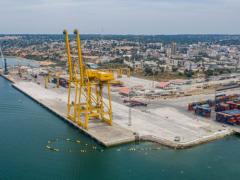South Africa’s top national industrial manufacturing spaces in the country have shed 20% of their jobs over the past few years.
National Treasury deputy director-general, Malijeng Ngqaleni, speaking at the National Industrial Parks Summit on Thursday, said the government’s data showed that 17 of its top 30 manufacturing spaces in the country had cut jobs between 2014 and 2021.
“Ten of these 17 spaces lost over 20% of their jobs, one as many as 40%. As a country, we cannot afford this and we, as the public sector, need to be held to account,” Ngqaleni said.
She added that the public sector did not demonstrate the value of these assets.
“In many instances, the public sector entities responsible for overseeing and managing these spaces – national and provincial economic sector departments, provincial-owned entities, and municipalities – appear not to value the economic, social, and financial contributions of these spaces as governance and other issues remain unresolved for years,” Ngqaleni said.
“Part of the problem is the difficulty the organs of state have to work together and collaborate,” she said.
There had been “wasteful” efforts to revitalise infrastructure in these parks, she added.
“Public sector infrastructure investment programmes are being delivered into some of these spaces, with the goal of revitalisation, but without addressing the fundamental factors that are undermining the performance of these spaces. This has resulted in low returns on investment and an inability to halt their decline.”
National Treasury has been partnering with the metros, the Department of Trade, Industry and Competition (dtic) – and its agencies such as the National Cleaner Production Centre, Productivity South Africa, the Global Eco Industrial Partnership Programme – and provincial investment agencies to pilot new collaborations to revitalise industrial parks, Ngqaleni added.
She said treasury had learned valuable lessons from these pilot projects, including that the greatest return on public sector investment would be in targeted spaces, with the strongest impact in terms of job and firm retention and expansion.
“Given limited public sector finances, the focus should be on brownfield as opposed to greenfield industrial developments. Getting the basics right in these spaces in terms of reliable and quality service provision, business and community safety, and proper land and space governance, is the fundamental building block to turning around these spaces,” Ngqaleni said.
“Partnerships within the public sector and with the private sector and civil society are critical to driving innovation and productivity within these spaces. Capital investment within the industrial spaces must be linked to demonstrated commitment by the relevant management authorities to getting the basics right.”
She added that the outstanding issue of land governance in cross-border parks must be urgently resolved to unlock public and private economic investment within these industrial spaces.
“Public sector performance in these spaces must be measured through firm and job retention.”













